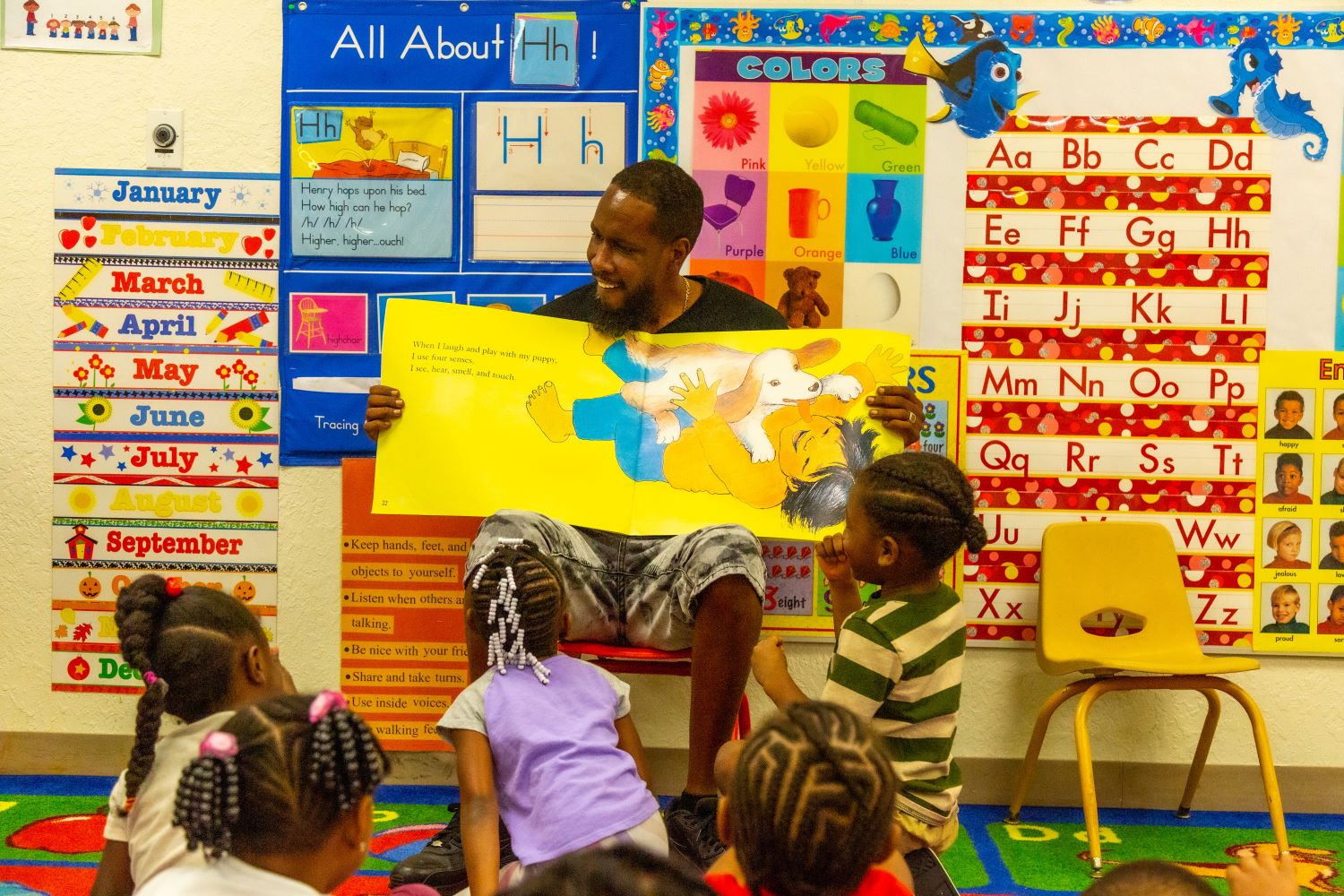Head Start programs can partner with community organizations to offer services for fathers with shared interests, goals, or needs. Staff can review family partnership agreements and other program data to identify fathers who share similar goals, such as developing job skills or improving financial literacy. Programs and staff can connect fathers with community resources to help them achieve their goals.
Programs can also facilitate partnerships with community agencies that benefit fathers. These may be communitywide initiatives that build on families’ strengths and address their needs (e.g., a campaign to promote fathers’ reading to children, a campaign to encourage parents’ attention to oral health). Community partnerships are most effective when they respond to fathers' strengths, interests, and needs.
 Build Community Partnerships
Build Community Partnerships
Get to know fathers in your program. Explore these strategies to learn more about their strengths and needs:
- Create a welcoming, father-friendly environment. Invite fathers to share their hopes and aspirations as well as their challenges and disappointments. Listen for shared ideas and interests. Work with fathers to identify what they have in common.
- Review the data your program collects about fathers’ strengths, interests, goals, and needs. Aggregate and analyze information from community assessments, family partnership agreements, discussions with fathers, parent leaders, staff, and other sources. Be mindful of confidentiality and privacy policies.
- Collect additional data, if necessary, from fathers to identify their current strengths, interests, goals, and needs. Consider distributing a short survey in print or through social media. Provide surveys in the languages spoken by fathers in your program. Review community assessment data.
Facilitate Community Collaborations
- Based on what you have learned about the strengths and needs of fathers in your program, identify community partners that provide relevant resources, learning experiences, and opportunities for groups of fathers.
- Ensure that new and existing partnerships offer community services that are culturally and linguistically responsive to fathers.
- Review existing memoranda of understanding (MOU), contracts, or letters of agreement that support partnerships. Are they clear, detailed, and up to date?
- Collaborate with community partners to provide services in familiar and comfortable settings for fathers (e.g., at the Head Start program, at a local community center). Partner with agencies whose staff are a good match to work with fathers.
- Plan and co-sponsor shared training and professional development for program staff, community partners, and parent leaders to strengthen service delivery and father engagement.
- Communicate regularly with community partners to assess the effectiveness of the partnerships and opportunities for continuous improvement.
- Engage fathers in the planning, implementation, and evaluation of program activities with community partners. Invite fathers to share their experiences to help improve the process.
Partnership agreements or Memoranda of Understanding (MOU) between your program and community organizations formalize the services offered, costs, and roles and responsibilities of each partner.
Practice Scenario
Explore the scenario below. Reflect on opportunities to strengthen community partnerships that are responsive to fathers, including fathers in the program and the community.
An Early Head Start director explains how her program worked with a community hospital to offer parenting classes to expectant and new fathers.
This partnership began when a father said to me, “I don’t feel comfortable holding my newborn.” The family advocate then talked with other fathers who shared similar feelings. They had many questions: “How do I bathe my baby? How can I help with feeding when the mom is breastfeeding?” We developed an MOU with the local hospital to offer prenatal classes for fathers in our program.
Some of the classes were for both mothers and fathers. Others invited only mothers or only fathers. One of the most popular sessions among fathers was about how fathers’ early interactions have a strong impact on brain development. Another one was on infant care. Fathers loved practicing diapering and bathing dolls. We were committed to supporting the development of a parent-child bond even before the baby was born.
Within this group, there were some fathers whose babies were born with medical or developmental challenges. The infants were kept in the hospital. These fathers were unsure how to interact with their babies. We worked with the fathers to advocate for more time in the hospital’s neonatal intensive care unit. The staff offered personalized training on how to use a feeding tube or how to hold a baby after surgery. This was a real plus because we could work with the parents and the baby together.
Reflection
Reflect on how community partnerships support individual fathers:
- How do your community partnerships promote family outcomes, including positive parent-child relationships, as in the scenario above?
- What programwide data do you collect to identify fathers’ interests and needs, and how often? How do you aggregate and analyze data to identify trends and patterns across the program?
- What does your community assessment tell you about available resources or needs?
- How does your program learn about fathers' prior experiences and current interests and use their input to make decisions about new partnerships?
Additional Resources
- Explore the Building Community Partnerships guide to learn more about enhancing community engagement.
- Learn more about goal setting with fathers in your program. Review The Family Partnership Process: Engaging and Goal Setting with Families.
- Explore the Measuring What Matters resource series to learn how using data more effectively can strengthen your work with children and families.
- Learn about research on the father-child relationship. Review Celebrate Fathers in Head Start Programs.
- Share Five Ways Fathers Support Their Child’s Learning Every Day with fathers in your program.
Last Updated: February 18, 2025
